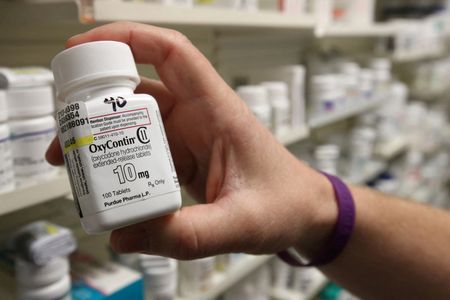By David Shepardson
WASHINGTON (Reuters) – The U.S. Commerce Department said late on Friday it will limit the size of government subsidizes for semiconductor manufacturing and will not let firms use funding to “pad their bottom line.”
On Thursday, the U.S. House of Representatives gave final approval to legislation that provides $52 billion in government funding to boost semiconductor manufacturing and research. President Joe Biden is expected to sign the legislation early next week.
The Commerce Department Friday told chips companies awards will be “no larger than is necessary to ensure the project happens here in the United States” and added it will discourage “race-to-the-bottom subsidy competitions between states and localities.”
Congressional Progressive Caucus chair Pramila Jayapal said the group backed the legislation after lengthy negotiations with Commerce Secretary Gina Raimondo after the group expressed concerns chips companies would use funding for stock buybacks or pay dividends.
A caucus spokeswoman said Friday “progressives were able to vote for the bill yesterday, confident that the department would be ensuring the funding could not be used for corporate self-enrichment.”
Commerce said applicants must supply detailed financial information and projections for proposed projects and capital investment plans: “The department will go over these with a fine-tooth comb and make sure that companies are not padding their models to ask for outsized incentives.”
A Commerce Department spokesperson declined to comment beyond the web posting.
The department vowed to “give preference in awards to companies who commit to make future investments that grow the domestic semiconductor industry … and not engage in stock buybacks.”
The legislation does not prohibit stock buybacks by companies receiving government funding but does prohibit the use of grant funds for the buybacks.
Companies winning funding will be prohibited for 10 years “from engaging in significant transactions in China or other countries of concern involving any leading-edge semiconductor manufacturing capacity or material expansions of legacy semiconductor manufacturing capacity designed to export to the U.S. and other countries.”
(Reporting by David Shepardson; Editing by Chris Reese)











